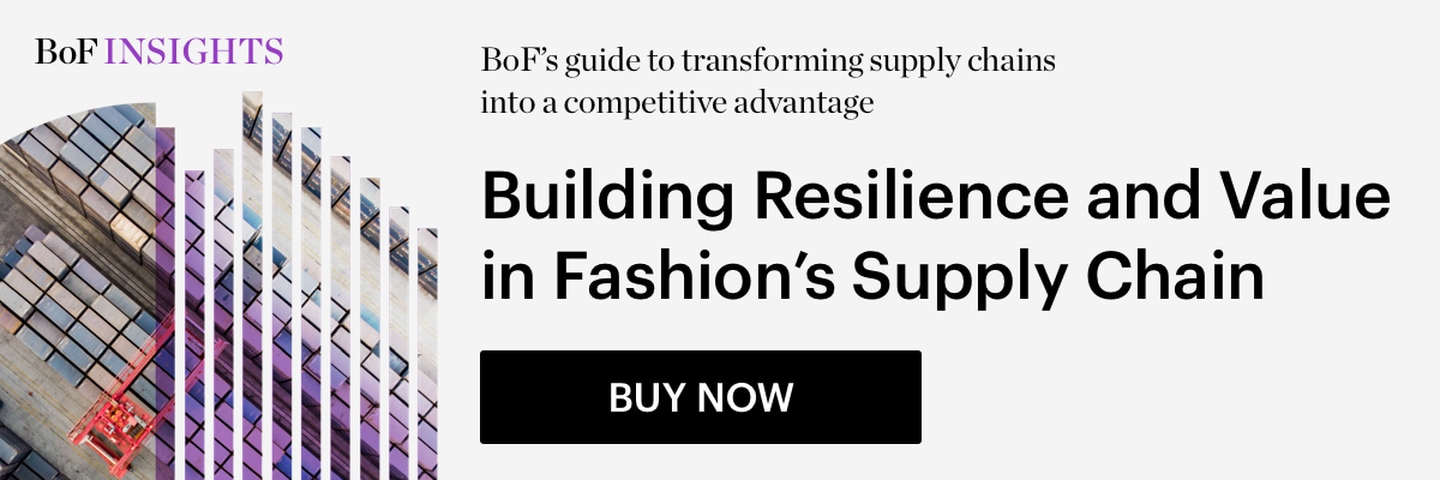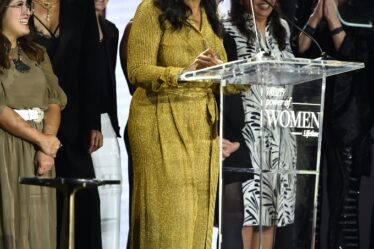
Discover what’s next in retail. Download Brookfield Properties’ white paper today.
LONDON, United Kingdom — In episode 2 of our exclusive new podcast series, in which Doug Stephens, founder of Retail Prophet, and BoF identify the new fundamentals of a reborn retail industry, presented by Brookfield Properties, we investigate how supply chains must evolve to respond to a new retail landscape.
“We have to look at the role of the supply chain and the mission it serves,” says John Thorbeck, chairman of Chainge Capital, a company that helps brands to reimagine their supply chain strategies.
“A pre-existing condition was normalised, […] the goal was to minimise incoming costs or maybe maximise the incoming margin. What I didn’t realise was how animated [manufacturing strategies] are, how driven it is by finding the lowest cost labour. It’s a longstanding trend, which means it’s deeply embedded in how this industry operates. But I think it’s now really being confronted by its endpoints,” he continues.
Indeed, even clothing that brands believe have been created in adherence to higher ethical standards can be problematic. “Most retailers or brands visit the factory, on average, maybe four times a year, if at all. How do they know what’s happening at the factory level? How do they know where their garments were really made, who really touched their garments?” explains Dio Kurazawa, co-founder of The Bear Scouts, an organisation that assists brands in implementing sustainable practices, who worked in the denim industry for over 20 years.
According to Nina Marenzi, founder of the Sustainable Angle and the Future Fabrics Expo tradeshow, innovation around actual materials is necessitated not only from a moral imperative, but a financial one too.
“From an economic point of view, it will become very expensive to use fibres that are reliant on freshwater and fertile soil because that’s going to be used for food,” says Marenzi. “[The industry] needs to diversify its portfolio fibres or it will be hit by high costs of the ingredients of fashion product.”
Listen out for episodes 3 and 4, where we deep dive into the new challenges and opportunities in on- and offline commerce.
To discover how retail’s rebirth will impact your business and learn critical, actionable insights into the challenges and opportunities retail’s new ecosystem will bring, subscribe to the series to ensure you never miss an episode.
Expert Commentators:
John S. Thorbeck is chairman of Chainge Capital LLC, a firm focused on transforming the operations of the fashion business. Thorbeck offers thought leadership in speed-to-market in his co-authored journal The Zara Gap, which details a financial model that links speed and market value, a case study on fast fashion strategies and process and data innovations. Thorbeck’s retail experience spans several executive roles across globally renowned brands: CEO of GH Bass & Co (PVH) and Rockport (Adidas); marketing executive for Timberland Co. and Nike; and advisory board member of numerous new ventures.
Nina Marenzi is the founder of The Sustainable Angle, a London-based not-for-profit organisation launched in 2010 with a mission to reduce the fashion industry’s environmental impact. Its hero initiative, The Future Fabrics Expo, stemmed from Marenzi’s exposure to industry waste and material inefficiencies as a student. Now in its 9th edition, the expo is the largest dedicated exhibition of innovative and sustainable materials in Europe, showcasing over 5000 materials from more than 150 suppliers, connecting the fashion industry to sustainable design solutions.
Dio Kurazawa is the founder of The Bear Scouts, assisting influential brands with the implementation of innovative sustainable solutions through the utilisation and implementation of socially responsible supply chains. Kurazawa formerly served as head of denim at leading trend forecasters WGSN and brings more than 20 years of experience within the fashion industry.



